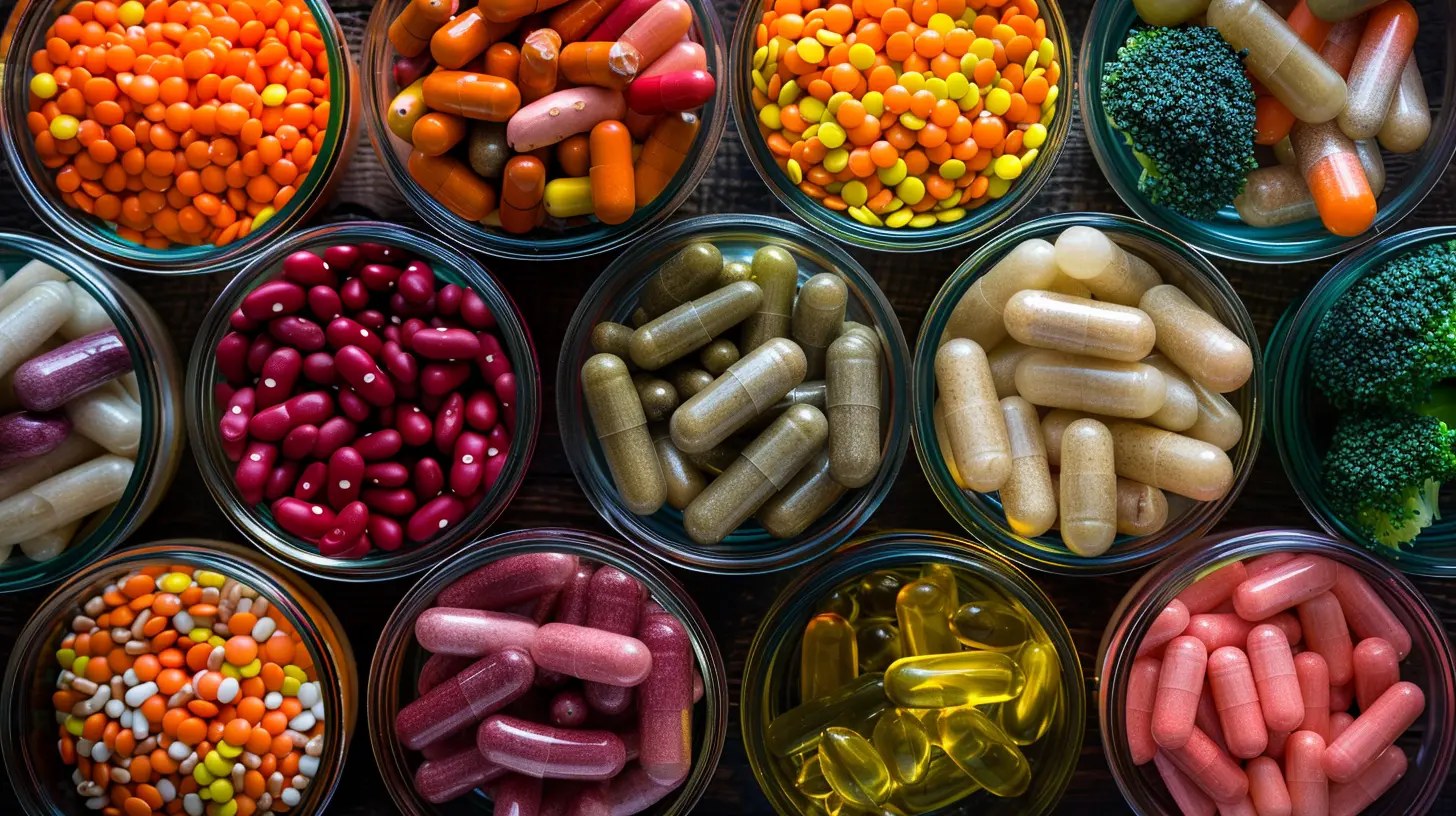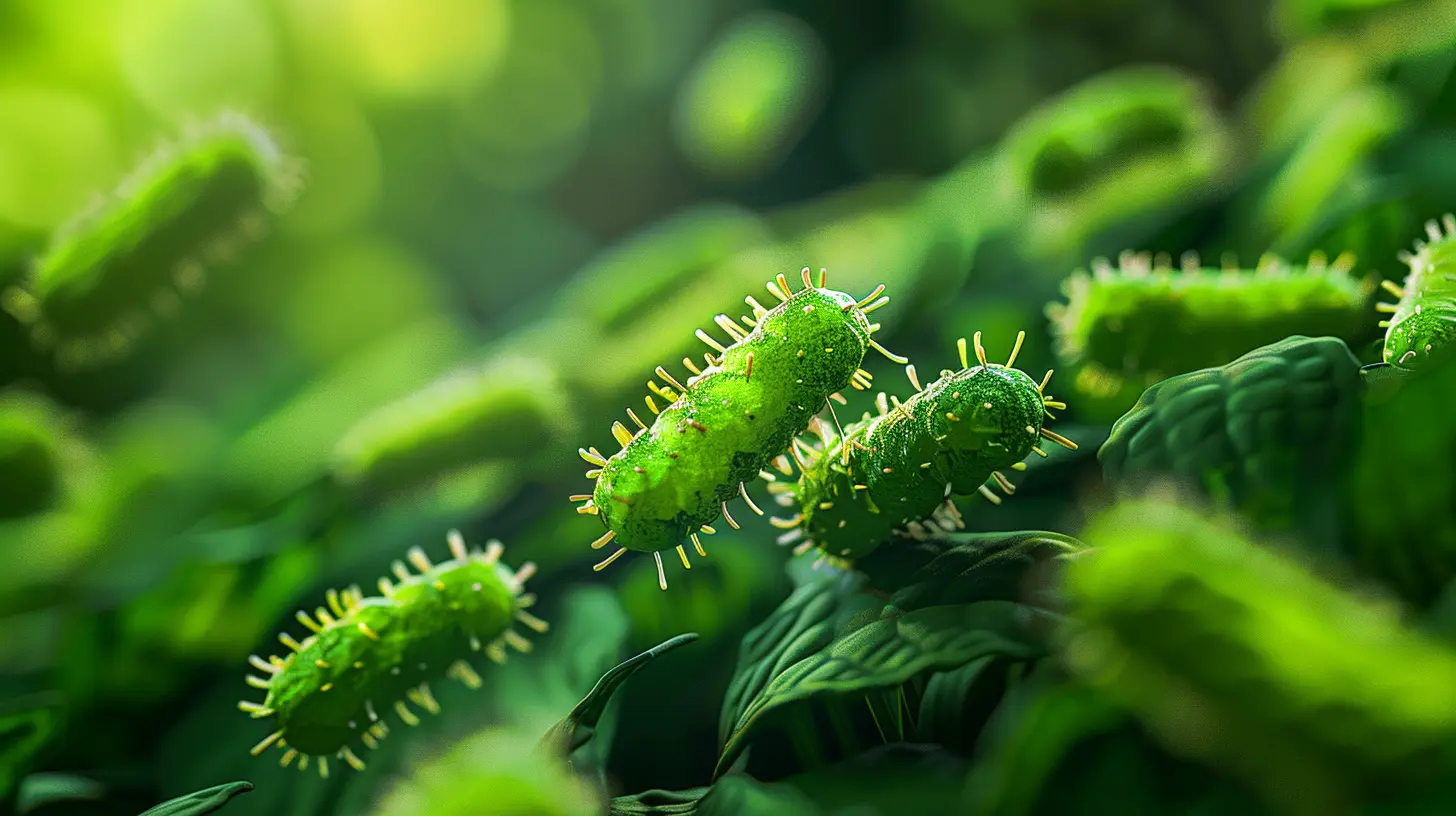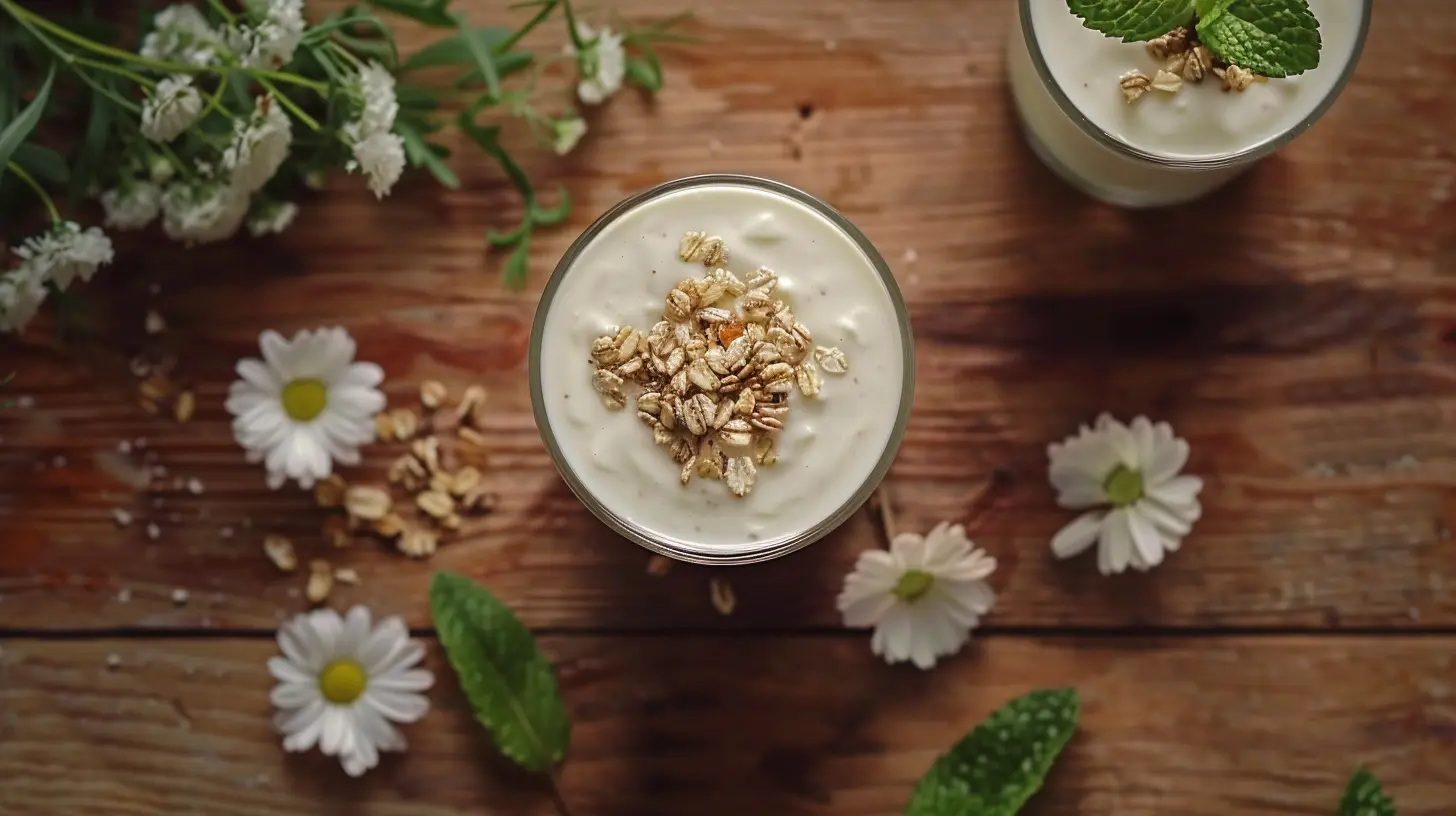Incorporating Probiotics into a Vegan or Plant-Based Diet
4 November 2025
When it comes to gut health, probiotics are the unsung heroes. These tiny, beneficial bacteria help keep our digestive system running smoothly, boost immunity, and even influence our mood. But if you're following a vegan or plant-based diet, you might wonder—where can you get probiotics without turning to dairy-based yogurt or supplements?
Well, good news! There are plenty of plant-based probiotic sources that can keep your gut microbiome thriving. In this guide, we’ll break down the best vegan probiotics, how to include them in your daily meals, and why gut health is so essential for overall well-being. 
What Are Probiotics and Why Do You Need Them?
Probiotics are live bacteria and yeasts that promote a healthy balance in your gut. Think of them as your digestive system’s personal army—fighting off harmful bacteria, aiding digestion, and even improving mental health.A well-balanced gut microbiome is linked to:
✅ Better digestion
✅ Stronger immunity
✅ Reduced bloating and gas
✅ Improved skin health
✅ Enhanced mood and cognitive function
And here's the kicker: a poor gut microbiome can contribute to everything from inflammation to mood swings. So, making probiotics a regular part of your diet is a game-changer. 
Can You Get Enough Probiotics on a Vegan Diet?
Many people associate probiotics with dairy-based foods like yogurt or kefir. But plenty of plant-based alternatives are bursting with probiotics, so going vegan doesn’t mean sacrificing gut health.You just need to know where to look. 
Best Vegan-Friendly Probiotic Foods
1. Sauerkraut
Fermented cabbage, aka sauerkraut, is packed with gut-boosting probiotics. But heads up—not all sauerkraut is created equal. Make sure to buy raw, unpasteurized sauerkraut since pasteurization kills the good bacteria.How to include it:
- Toss it onto a salad
- Add it to sandwiches or wraps
- Eat a spoonful as a gut-friendly side
2. Kimchi
Kimchi is Korea’s spicy, tangy answer to probiotics. Made from fermented vegetables like napa cabbage and radishes, it’s a powerhouse of beneficial bacteria.How to include it:
- Mix it with rice or noodles
- Stir it into soups for an extra kick
- Serve it as a side dish with any meal
3. Tempeh
Tempeh is a fermented soybean product with a firm, chewy texture. It’s packed with probiotics and protein, making it a perfect addition to a plant-based diet.How to include it:
- Slice and pan-fry for a crispy, protein-packed topping
- Crumble into tacos or salads
- Marinate and grill for a meaty texture
4. Miso
This Japanese staple is made from fermented soybeans and packs a probiotic punch. Miso paste is perfect for soups, dressings, and marinades.How to include it:
- Stir it into warm (not boiling) water for a quick probiotic broth
- Add it to salad dressings for umami flavor
- Use it in marinades for tofu or vegetables
5. Kombucha
This fizzy, slightly tangy tea is a delicious way to get your daily dose of probiotics. Made from fermented tea, kombucha also contains beneficial acids and antioxidants.How to include it:
- Drink it as a refreshing beverage
- Use it as a base for smoothies
- Mix with juice for a probiotic-packed treat
6. Plant-Based Yogurt
Many brands now offer non-dairy yogurts made from coconut, almond, or cashew milk—many of which are fortified with probiotics. Just check the label to make sure “live active cultures” are included.How to include it:
- Eat it as a snack with granola
- Blend into smoothies
- Use as a base for creamy dressings
7. Fermented Pickles
Regular store-bought pickles don’t contain probiotics (unless they’re naturally fermented). Look for pickles made without vinegar and labeled “fermented” to get gut-friendly benefits.How to include it:
- Eat them as a crunchy snack
- Chop into salads for extra flavor
- Add to sandwiches or wraps 
How to Incorporate Probiotics into Your Plant-Based Diet
Now that you know where to find vegan probiotics, let’s talk about how to seamlessly add them to your daily routine.1. Start Small and Go Slow
If you’re new to fermented foods, don’t go all in at once—unless you want an upset stomach. Begin with small servings and let your gut adjust.2. Mix and Match for Variety
A diverse gut microbiome is a happy one. Try different probiotic foods throughout the week. Some days, sip kombucha; other days, add kimchi to your meals.3. Pair Probiotics with Prebiotics
Probiotics need fuel to thrive, and that’s where prebiotics come in. Prebiotics are fiber-rich foods that feed good bacteria. Some great plant-based sources include:- Bananas
- Garlic
- Onions
- Asparagus
- Oats
Think of prebiotics as the fertilizer that helps probiotics grow strong!
4. Get Creative in the Kitchen
Probiotic-rich foods don’t have to be boring! Experiment with fun ways to incorporate them into your meals:- Make a kimchi stir-fry
- Blend plant-based yogurt into smoothies
- Create probiotic-rich salad dressings with miso
5. Be Mindful of Heat
Cooking fermented foods at high temperatures can kill probiotics. Try adding them as toppings or mixing them into dishes after cooking.Can You Take Probiotic Supplements on a Vegan Diet?
Absolutely! If you struggle to get enough probiotics from food alone, a high-quality vegan probiotic supplement can help. When choosing one, make sure it’s:✅ 100% plant-based and dairy-free
✅ Contains a variety of probiotic strains
✅ Includes at least 10-30 billion CFUs (colony-forming units)
Supplements aren’t a replacement for food-based probiotics, but they can be a great addition—especially when you need an extra gut health boost.
Common Myths About Probiotics and a Vegan Diet
1. “You Can’t Get Good Probiotics Without Dairy”
False! Plenty of plant-based foods are naturally fermented and loaded with probiotics.2. “You Need Probiotics Only If You Have Digestion Issues”
Wrong again. Even if you feel great, probiotics help maintain balance in your gut, support immunity, and promote overall well-being.3. “All Fermented Foods Contain Probiotics”
Not necessarily! Some fermented foods, like sourdough bread or beer, undergo processes that kill probiotics. Always check that foods are labeled as containing “live and active cultures.”The Bottom Line
Incorporating probiotics into a vegan or plant-based diet is totally doable—and incredibly beneficial for your gut, immunity, and mood. By adding probiotic-rich foods like kimchi, tempeh, and plant-based yogurts, you can boost your digestive health naturally.Pair these with prebiotics, experiment with creative meal ideas, and consider supplements if needed. Your gut will thank you!
all images in this post were generated using AI tools
Category:
ProbioticsAuthor:

Eileen Wood
Discussion
rate this article
1 comments
Jaxon Brooks
Great insights on probiotics! Incorporating them into a vegan diet enhances gut health and overall wellness.
November 4, 2025 at 5:49 AM

Eileen Wood
Thank you! I’m glad you found the insights helpful for enhancing gut health on a vegan diet!


